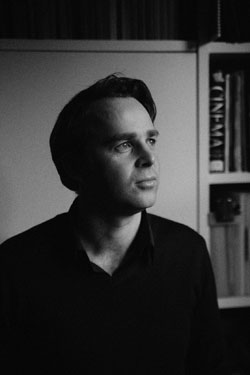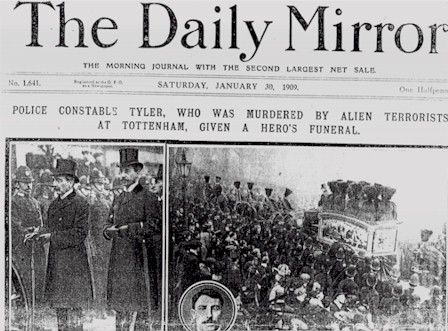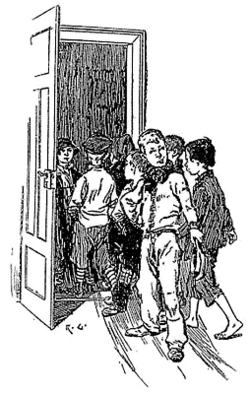Shots: Hi H.B., thank
you for agreeing to this interview.
HB: Not at all.
Shots: Let the fun
begin. You
are at a party, someone asks what you do. Tell us a little about
yourself and your background?
 HB: I’ve worked in
the film industry for many years, mostly as a screenplay development executive
for companies such as Working Title Films and the Film Council. I then took an MA in Creative Writing at UEA,
followed by a PhD there. All this after an education in a series of anarchist
schools, where tests were non-existent and homework was dirty word.
HB: I’ve worked in
the film industry for many years, mostly as a screenplay development executive
for companies such as Working Title Films and the Film Council. I then took an MA in Creative Writing at UEA,
followed by a PhD there. All this after an education in a series of anarchist
schools, where tests were non-existent and homework was dirty word.
I’m a Londoner born and bred, and I hope the novel
reflects that – I love the place. And I once played football with Bobby
Charlton, a lifetime high I wrote about for the Guardian. I still live in South
London, with my partner and young twin daughters.
Shots: So, that’s you. How about your main character
from THE IRREGULAR – Wiggins.
HB: Wiggins used to
work for Sherlock Holmes. Smart as a tack, he grew up an orphan on the streets
of London, leading a rag-tag gang of street urchins, the Baker Street
Irregulars, as they work for Holmes.
Now thirtyish, he’s returned from a long spell in the
army and he’s making a hard living on the streets of London. He can never shake
his anti-authority streak. He ‘don’t do official.’
Shots: What does he do that is so special?
HB: Wiggins knows London like the back and front of his hand. He can fight, he
can climb, he can run. This is his town. He’s whip smart and, here’s the
kicker, he’s been taught by the best. With Sherlock Holmes as your mentor,
you’ve always got a chance of using those deductive skills in unusual
environments.
Had Wiggins been born into a different strata of
society, he would have been wildly successful – as it is, a gutter-class street
kid doesn’t have a hope of rising in Edwardian society. He’s a superior man
born into an inferior position.
Shots: You appear to be a writer very comfortable
with writing in historical contexts. What do you consider the most difficult aspect of writing
an historical novel?
HB: It’s finding
the balance between authenticity, readability and story-telling. You could be
totally authentic (in terms of the historical detail) but then there’s a good
chance that what you write might be quite boring. Conversely, you could invent
a riveting storyline, but if it is too improbable for the period, then you’ll
lose the reader that way.
Finding this balance is particularly hard with
dialogue. You don’t want the characters to use words that haven’t been invented
yet (believe me, this is easy to do) yet you need to find a modern tone and
rhythm, otherwise it might become too hard to read.
Shots: You have
characters based on real people and you are using the names - Winston
Churchill, Mansfield Cumming & Vernon Kell for example, so you have to be
reasonably responsible to the originals. During your research did you find out
anything about these people that made you go “Wow, I didn’t know that”?
HB: As you say, the
use of real historical figures is always a delicate balance to strike. You want
to write interesting, surprising and engaging characters - traits that the
original people might not have. So while I've tried to be reasonably
responsible with my depiction of these people, I've had some fun with them too.
The biggest 'Wow I didn't know that' moments in my
research actually came through the events as much as the people. In particular,
I'd never heard of the Tottenham Outrage before, yet it's an incredible,
chaotic, scarcely believable sequence of events with innumerable gob-smacking
moments. I've tried to put as many of these in the novel, so I won't spoil the
surprise now, but suffice to say that truth is so often more bizarre and
unusual than fiction.

Shots: How do you know when a
story is right? Does it hit you first time or are you critical of it as you go
along?
HB: My background is in screenplay development,
and so I am very used to the process of writing and rewriting, and working on
the story again and again. That gives you the discipline to be constantly
critical (certainly in the rewriting process.)
With The Irregular, for example, my first thought for the story actually
had as its finale an event that will now feature heavily in book two. I
realized while writing that I had to tell the story much more quickly, hence I
invented the finale rather than using one from history.
Shots: Part of the thrill of
being told a story is the chance of being hoodwinked or conned - can you give
an example of this from either your novels or research?
HB: It’s tempting to use an example from the
novel, but I don’t want to spoil it for any potential readers.
One of the best examples I
can think about of being ‘conned’ – or what with my film hat on I might call a
‘reverse’ – actually comes from the film version of LA Confidential. (Spoiler alert!) It’s when the character of Jack
Vincennes (played by Kevin Spacey in the movie) goes to report to the head
copper. He ends up with a bullet in the chest, revealing that the boss in the
ultimate villain.
It’s brilliantly done and
totally unexpected. What really kicks this reveal onto the next level is that
Vincennes utters the name ‘Rollo Tomassi’ with his dying breath, thereby
transmitting a clue – from the grave – to his colleague.
 Shots: Without the
Wiggins/Sherlock Holmes connection how would the whole premise of THE IRREGULAR
worked?
Shots: Without the
Wiggins/Sherlock Holmes connection how would the whole premise of THE IRREGULAR
worked?
HB: This isn't such a
strange question. Indeed, I had a version of this question put to me by a TV
producer, whether we 'needed' Holmes.
The short answer is that
most of the narrative could work much as it is now, even without Wiggins's
connection to Holmes. Or rather, the bulk of the 1909 narrative - the three
main storylines - do no rely on this connection. The one major difference would
be Wiggins's backstory, which might not have been included at all, and the
resulting changes to his character.
However, I think the book is
better for this connection. In particular, I think it helps the tone and it
also allows for a greater sense of fun and playfulness, to go with the darkness
and the thrills.
Shots: What are your thoughts on writing a book
series because as the series continues,
the range of options for the main character will narrow down. Do you find
yourself consciously thinking how Wiggins will develop?
HB: There’s a tension in Wiggins’s position that becomes more pronounced in
book two, and it’s a tension that is one that I’m eager to explore more. I have
in my head a character arc for Wiggins that could extend to five or seven
books. That is, I have an end point for him, and I know how to use certain real
life events to help me get there and dramatize this journey.
This is where being an historical novelist is a great boon – because
there are real events that can be used and ‘written towards’ as staging posts
or end points. It helps me as the writer to structure character arcs.
Shots: What made you decide to sit down and actually
start something?
HB: I don’t really
know the answer to this question. But I think that what distinguishes many
writers from those who are not writers isn’t this decision to start writing
something: it’s the decision to finish what they’ve started. And I’ve always had the resolve to finish my
work, be it a short story or my first (as yet still) unpublished novel. I
realized very early on that there’s no point starting if you’re not prepared to
finish.
Shots: What do you find is the
most difficult aspect of writing?
HB: Finishing. Or rather,
there’s a stage when you’ve written most of the novel – or maybe even completed
the first draft – and you have to hold the whole of the story in your head in
order to rework it. This is very difficult mentally, given the plot lines, the
characters, the language used etc. Making something as long and complex as a
novel into a coherent whole – and considering it as such in your head – I find
hard.
Shots: What do you like most
about your own writing?
HB: There are always too many flaws to ever feel
self-congratulatory about any one element. However, the element that I work
hardest on getting right is probably story-telling. Keeping the narrative
ticking is something that is key to any film writing, and I think I’ve
inherited this from my film work.
Shots: Have crime and thrillers
played a significant part of your reading background?
HB: My reading background is unusual. For most of the
last fifteen years, I’ve been reading books as part of my film work – in other
words, you read books to assess their potential for film adaptation.
This has meant my
reading habits have been largely circumscribed by my job. I’ve therefore read
extensively in just about every genre going since I started working in film: comedy,
romance, non-fiction of all types, literary fiction and, yes, a lot of crime
and thrillers.
Thinking back to
the days when I picked up books for fun, I would say I read fairly widely then
too and not specifically in the crime and thriller world. My favourite
characters from literature are probably Harry Flashman, Sherlock Holmes, George
Smiley, Rumpole of the Bailey and Elizabeth Bennet.
Shots: Could you summarise
what really motivates you as a writer?
HB: It sounds cheesy, but
I go back to that word storytelling. I like to tell stories. Beneath that, I
love working with the language. It’s endlessly fascinating to me how words get
their power, and how rearranging them alters meaning, adds impact and,
ultimately, stirs emotion.
Shots: The book is going to be adapted for TV - by you I assume?
Can you tell us anything about it? (can’t find any info on IMDB)
HB: I am currently
adapting it with the director Saul Dibb (N-W, The Duchess, Suite Francaise) for
See-Saw Films (Top of the Lake, The King’s Speech.)
I can’t say too
much more at present as the producers have plans for it, but watch this space.
Shots: Obviously you’ve written Book 2 - can you share
anything about it with us - or will I feel the wrath of the newly-formed
foreign arm of the SIB?
HB: Book 2 isn’t yet at a stage where I can share too
many details. What I will say is that 1910 is a very interesting year in
Britain, that the sequence of events that started with the Tottenham Outrage in
Book 1 comes to a head spectacularly in Book 2 and that, yes, the foreign arm
of SIB will play some part in Wiggins’s career – watch this space to find out
exactly how!
Shots: Many thanks, HB. And congratulations on your debut.
H.B. Lyle’s debut thriller The Irregular is published on 18th
May by Hodder & Stoughton, £17.99
Read SHOTS' review
